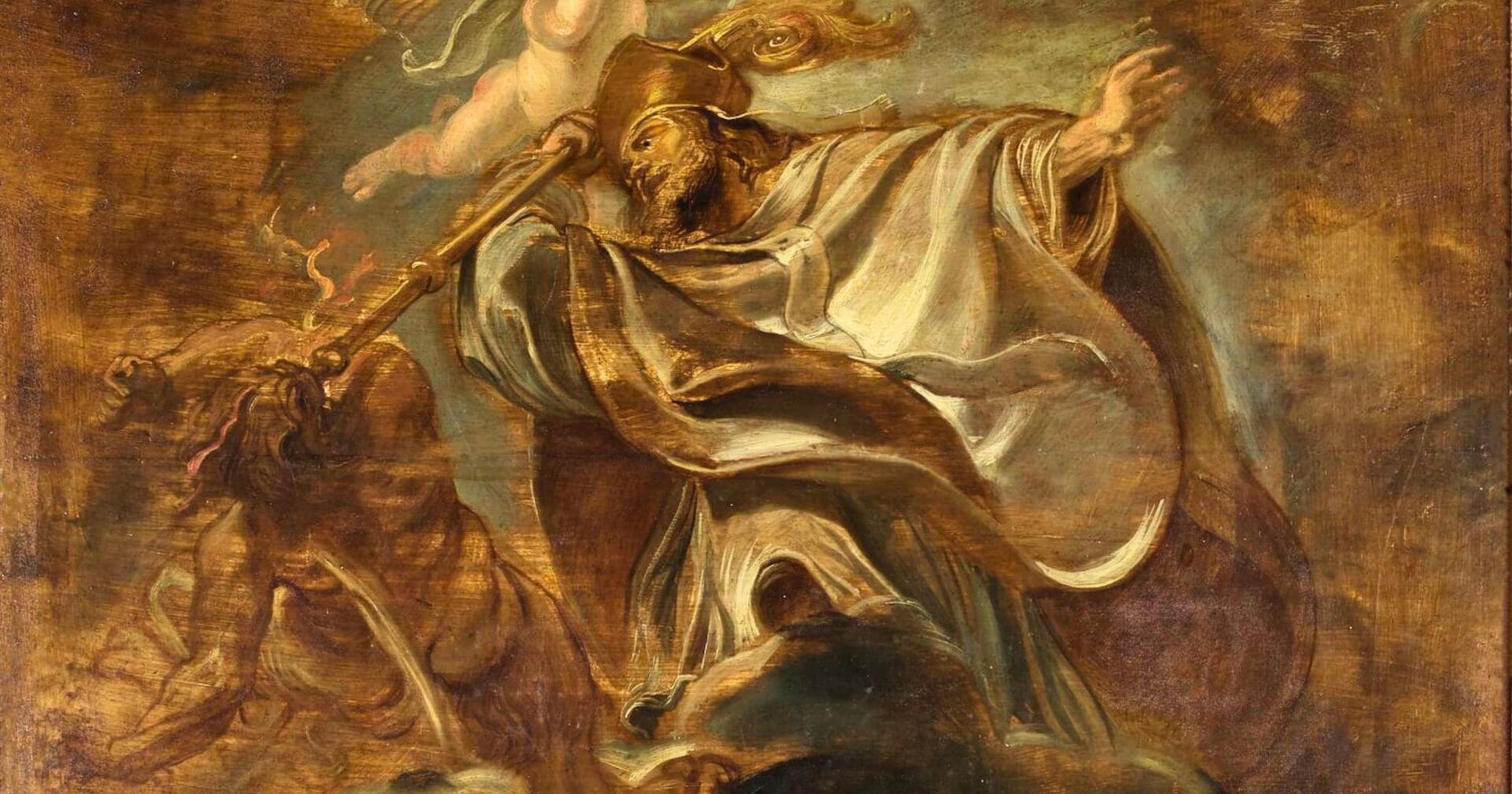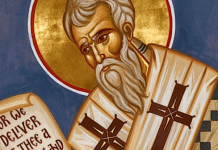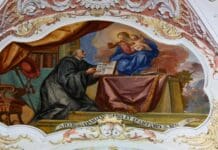Saint Gregory Nazianzen, recognized as a Doctor of the Church and often called “the Theologian,” lived a life marked by gentleness, scholarship, and a series of personal and professional challenges. Despite facing numerous controversies, disputes, and misunderstandings, not only with his adversaries but also with those closer to him, his contributions have been increasingly appreciated over time.
Gregory was born into a family of saints in Arianzus, Cappadocia. His father, a bishop, belonged to an era when married clergy were common. Gregory’s education spanned several regions – Cappadocia, Palestine, Alexandria, and Athens. It was in Athens where he forged a deep friendship with St. Basil. At thirty, he left Athens to join Basil in a life dedicated to retreat, prayer, and study, laying a foundation for future monastic practices in both the East and the West.
Returning home to assist his aging father, Gregory was reluctantly ordained, a practice not unusual for that time. Struggling with a sense of unworthiness, he initially fled to Basil but soon returned and wrote a treatise on priesthood, which has inspired many, including St. Gregory the Great.
Gregory’s tenure at Nazianzus was tumultuous, and his inability to engage in confrontational defense of church matters strained his relationship with St. Basil. After a peaceful five-year retirement, he was called to Constantinople, a city then dominated by Arianism and religious strife, often expressed through street fighting and political intrigue.
Despite his unassuming demeanor and initial unpopularity, Gregory’s eloquent sermons on the Trinity gradually earned him respect and fame, attracting listeners like St. Jerome. His appointment as bishop of Constantinople was met with strong opposition, prompting him to resign and retreat into a life of study, writing, and mortification, where he found contentment in his final years.
Photo credit: Public Domain via Wikimedia Commons


















[…] […]
Google has in-person and farther employments, and they contract from around the world. Google Paid 3500$ in a day. n Once you hunt for these employments on their location, include your area and check the remote-eligible work filters.
Flollow Here…. https://GooglePaidWork.blogspot.com
How funny that St Gregory and St Basil share the same Feast day. It’s comforting to know the Saints also had troubles and are still declared Saints. Gives me hope that even in difficulties, and when “friends” fail, that other Saints before us lived through the same circumstances with holiness and courage! St Greogry Nazianzen, pray for us!
[…] post Saint Gregory Nazianzen appeared first on […]
Saint Gregory Nazianzen, pray for us!
O All-Transcendent God
(and what other name could describe you?),
what words can hymn Your praises?
No word does You justice.
What mind can probe Your secret?
No mind can encompass You.
You are alone beyond the power of speech,
yet all that we speak stems from You.
You are alone beyond the power of thought,
yet all that we can conceive springs from You.
All things proclaim You,
those endowed with reason and those bereft of it.
All the expectation and pain of the world coalesces in You.
All things utter a prayer to You,
a silent hymn composed by You.
You sustain everything that exists,
and all things move together to Your orders.
You are the goal of all that exists.
You are one and You are all,
yet You are none of the things that exist,
neither a part nor the whole.
You can avail Yourself of any name;
how shall I call You,
the only unnameable?
All-transcendent God!
Google has in-person and farther employments, and they contract from around the world. Google Paid 3500$ in a day. m Once you hunt for these employments on their location, include your area and check the remote-eligible work filters.
Flollow Here…. https://GooglePaidWork.blogspot.com